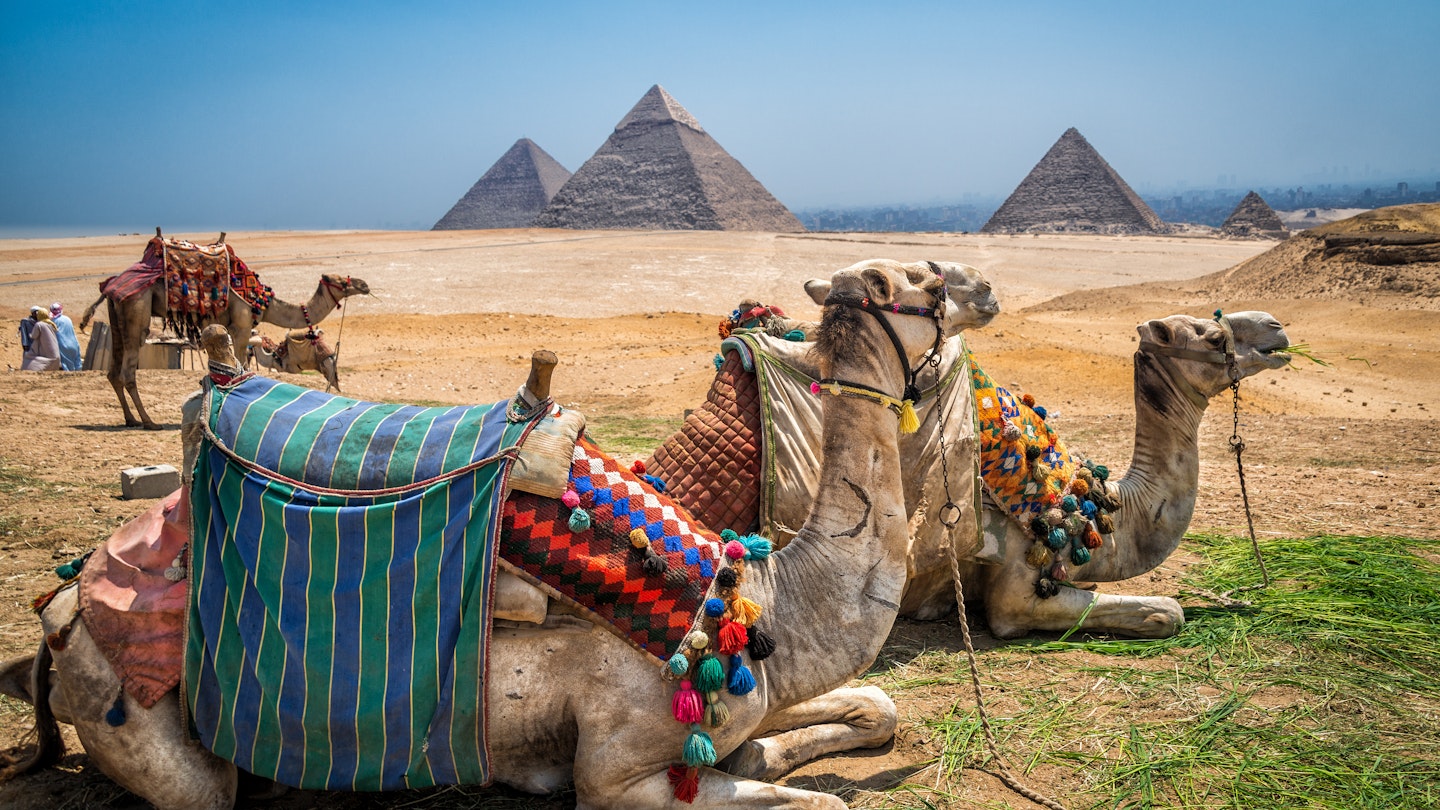
Dec 11, 2024 • 7 min read

Jun 19, 2020 • 2 min read

Egypt will begin reopening some regions to international travellers in July © Dale Johnson/500px
Egypt is reopening its borders to international tourists on 1 July, but many parts of the country will remain off-limits. Visitors will be limited to staying overnight at the country’s coastal resorts along the Red Sea and the Mediterranean, such as Sharm El Sheikh, Dahab and Hurghada.
Some accommodations around the country opened for domestic tourists on 1 June. Hotels must receive a government-approved hygiene safety certificate before welcoming guests again, and they will be allowed to operate at just 50% capacity.
The Minister of Tourism and Antiquities also announced that eight archaeological sites will be reopened, including the Pyramids of Giza, the Egyptian Museum on Tahrir Square in Cairo, the Karnak temple complex and Abu Simbel, which have been closed since March. Other cultural sites will be gradually reopened at later dates. This year was supposed to finally see the opening of the Grand Egyptian Museum, which has now been pushed back to 2021.

To lure travellers to visit, the Egyptian government has eliminated the need for tourist visas for visitors to the country’s ‘touristic governorates’ until the end of October. Travellers who fly with EgyptAir or Air Cairo will also get a 20% discount on tickets to museums and archaeological sites.
Tourism makes up more than 10% of Egypt’s economy, and 2020 was slated to be one of the country’s biggest years yet. In addition to the scheduled opening of the GEM, new internal flights were launched between Sharm El Sheikh, Hurghada and Luxor, easily connecting the beach resorts with the hub of Egypt’s cultural sights for the first time, and a brand new airport had been opened in Giza. However, the country has recorded more than 1000 new cases of coronavirus each day in June so far, and the UK’s Foreign and Commonwealth Office previously advised against all but essential travel to all of South Sinai outside Sharm El Sheikh even before the pandemic struck.
Lockdowns are easing globally as the planet adjusts to a new normal. Find out how COVID-19 is changing travel.
Ask Lonely Planet: 'Will flights cost a lot more after COVID-19?'
10 ways hotel stays will change after COVID-19
These are the US states that require travelers to quarantine

Sustainable Travel
24 of the world’s most incredible train journeys to book in 2025Jan 8, 2025 • 11 min read

Dec 11, 2024 • 7 min read



Nov 20, 2024 • 6 min read




Mar 12, 2024 • 4 min read
